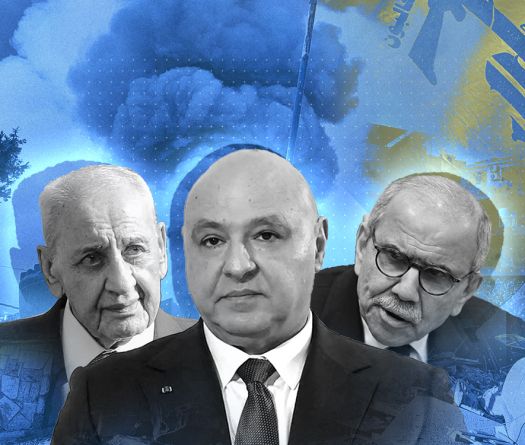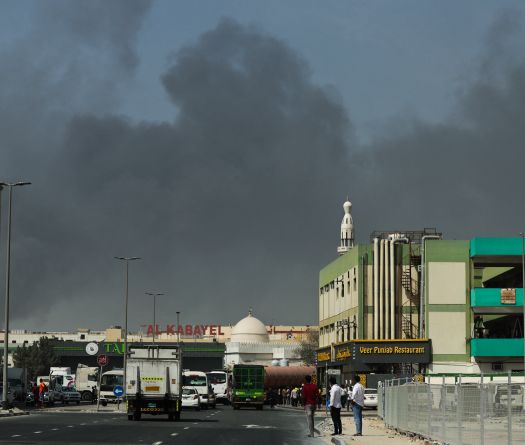
- 11:27 Iran warns European countries against joining war: foreign ministry
- 11:20 Belgium arrests 4 people over 'crimes against humanity' in Cameroon: prosecutors
- 11:19 Global oil prices surge 5% on Middle East conflict
- 11:18 Series of blasts heard from Jerusalem: AFP journalists
- 11:16 European stock markets extend losses, Frankfurt down 3%
- 10:36 Drone debris causes fire at UAE oil industry site, operations resume: media office
- 10:26 Lebanon's army redeploys troops in border area after Israel's 'escalation': army source
- 10:10 European gas prices jump another 30% on Iran fallout
- 10:09 European stock markets extend slide at open amid Iran war
- 09:57 Brent crude surges more than 4% on Middle East turmoil


U.S. Official to TIB: ‘Hezbollah has made a grave mistake by entering this war at Iran’s direction’
This is Beirut 02/03 21:00

Israel Intensifies Campaign in Lebanon Against Hezbollah as Israeli Army Plans Next Steps
This is Beirut 02/03 18:20

Israel Army Chief Vows to Strike 'All Terrorist Leaders and Factions' Across Middle East
This is Beirut 02/03 16:45

Israeli Army Issues 18 Urgent Evacuation Warnings Across Lebanon
This is Beirut 02/03 14:45
See all

U.S. Embassies Targeted Throughout the Region
This is Beirut 03:40

Qatar Downs Iran Warplanes, Halts LNG Production as Gulf Crisis Deepens
This is Beirut 02/03 19:45

Breaking the Crowdfunding Myth: The Digital Architecture Funding Iran’s Proxy Wars
Ian Talley 02/03 16:05

Saudi Military Raises Readiness Levels After Attacks
This is Beirut 02/03 16:00

U.S. Secretary of War: “The Iranian Regime Must Change”
This is Beirut 02/03 15:45


































